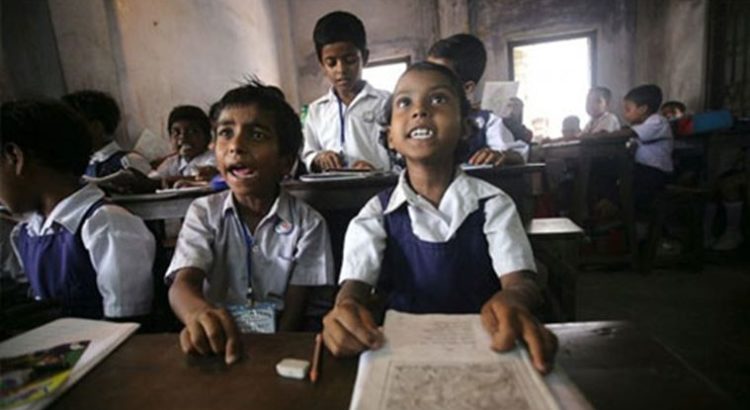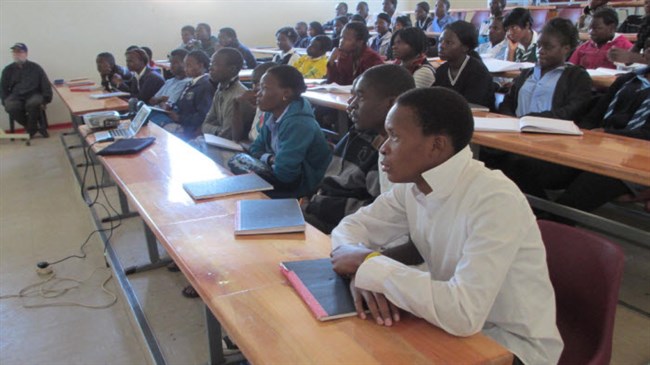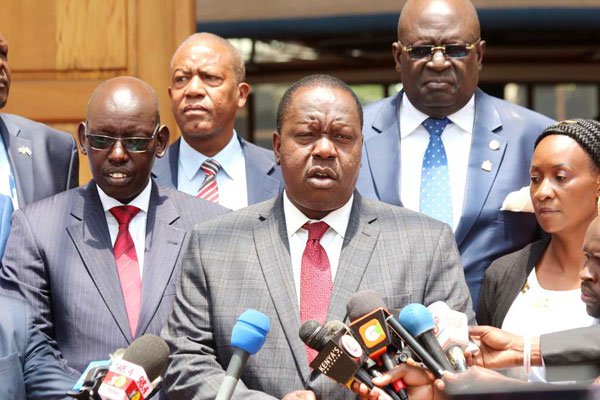However, only 43 percent of young people have access to secondary education and only eight percent can access tertiary education, according to UNESCO’s Global Monitoring Report, 2016, newtimes.co.rw wrote.
Thus, in order to achieve a more educated population, a higher retention of more girls and young women in schools, especially those pursuing the sciences, will contribute to social transformation.
Given the huge education gap between the number of boys and girls studying sciences, a disruption in traditional mindsets must occur. Young women need to be at the forefront alongside young men when it comes to making change.
Linah Divine Icyezumutima is a Physics, Chemistry and Mathematics (PCM) student at FAWE School and one of the secondary school scholars that The MasterCard Foundation supports through FAWE Rwanda. She chose to study science subjects because she wants to become a pilot.
“When I was still young, I remember, I saw it fly in the skies. I was told that it was an animal. So I used to run and hide because I was terrified! But after I knew what it was, I loved watching it fly in the sky as a child. I always thought to myself, why can’t I be the one to fly that thing,” Icyezumutima narrated her childhood experience with airplanes.
Nevertheless, it has not been a smooth road for the seventeen-year-old Icyezumutima. Three years ago, Icyezumutima was an O’Level candidate when her mother passed away. This was a huge blow to her studies as her hopes for tuition were dashed.
“It was really difficult when my mother died. Even though my father is alive, he doesn’t care that much because he has another wife and he doesn’t know such kinds of stories about us. So I went to live with my grandmother in Byumba,” she said.
Together with her older brother and younger sister, they were taken in by their grandmother who cultivates land to take care of them. She appeared to be the end of her education. And, despite doing her national exams while carrying the grief of her mother’s death, she excelled. She was located by FAWE Rwanda for the Scholars program and is an A’Level candidate today.
Speaking about the challenges that girls face with pursuing education in the science field, Icyezumutima said it was a matter of perspective and determination.
“Rwanda is developing and I just feel comfortable with my country and this is what motivates me to inspire other girls to reach for their goals. Your past does not determine your destiny, you have to be focused and know what you want to achieve. Give your best effort and reach your goals,” she said.
Ivy Mwai is the Senior Program Manager, Education and Learning at The MasterCard Foundation that works to make education relevant and meaningful by investing $800 million to support 35,000 scholars globally. The bulk of these students are African in both secondary and Tertiary institutions, with a few in Lebanon and Costa Rica.
“Historically, girls have not been encouraged to pursue sciences but have always been told that science subjects are for boys and difficult, and that girls should stick to simple subjects. Yet there are many young women who have a lot of potential and interest in science subjects,” Mwai said.
“We have been very intentional about supporting young women overall, particularly those in sciences so that they can pursue their studies without any distractions. This way, they can join some of the finest schools both at secondary and tertiary levels,” she said.
Emphasising girls’ education comes with greater returns because when girls are educated, families benefit more. Girls are more likely than their counterparts to raise their family’s income, stay healthy and participate in uplifting their community once they are educated. This is why two-thirds of all the MasterCard Scholars are women — at 66 percent.
“We believe that women are a living science everyday and once they are able to practice and especially do it in school they are able to contribute even greater in their economies, communities and ideas that will change the world,” Mwai said.
“If you look at AIMS (Africa Institute of Mathematics and Sciences), their catch-phrase is, ‘The next Einstein will be African’; but we like to add, ‘An African woman’ to it”, she said.
The challenge for the Foundation has been finding the right kind of scholars, those who are most vulnerable and yet with so much potential. They facilitate the ability for some partners to hire more people to go to the grassroots and connect with organizations there to go beyond the limited context within which they operate. This means expanding their inclusivity and equity within the program to reach the populations by cutting across geographic limitations, marginalized people, those with disabilities, gender and bringing in those who would traditionally not be able to access education in sciences.
Through supporting the existing programs of their partners the Foundation’s scholars program enables young women to pursue their education dreams. In Rwanda, they partner with CMU-A (Carnergie Melon University-Africa), AIMS (Africa Institute of Mathematics and Sciences), ALU (Africa Leadership University) and FAWE Rwanda through whom they support over 1200 high school students.
Source:
http://www.iran-daily.com/News/202853.html










 Users Today : 14
Users Today : 14 Total Users : 35460367
Total Users : 35460367 Views Today : 18
Views Today : 18 Total views : 3419118
Total views : 3419118